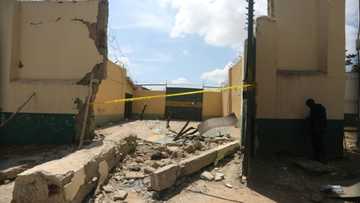Report Reveals How Over 3,000 Persons Were Kidnapped In One Year, N6.5billion Demanded
- Some unscrupulous individuals in Nigeria have continued to profit from the sorrows of many families
- A new report has shown how over 3,000 persons in the space of one year were kidnapped
- The kidnap incidents, which mostly happen in the northern part of the country, also revealed
A new report has revealed that more than 3,420 persons were abducted across Nigeria between the period of July 2021 and June 2022.
The report prepared by SBM Intelligence titled ‘the Economic of Nigeria’s Kidnap Industry’ released on Saturday also noted that the kidnappers demanded N6.5billion from the victims.
However, it noted that in exchange for the release of captives, a fraction of that sum (N653.7million) was paid as ransom, BusinessDay reports.

Part of the report reads:
PAY ATTENTION: Subscribe to Digital Talk newsletter to receive must-know business stories and succeed BIG!
“These figures are particularly important because of the rising poverty levels in the country. In 2020, Nigerians spent 62 percent of their income on food, leaving very little for disposable income and nondiscretionary spending,."
The report also added that over the past few years, Nigerians have become even poorer, following how much they have had to part with for their loved ones. The kidnappers are adapting and now sometimes ask for ransom payments in forms other than money.
Kaduna-Abuja train
SBM Intelligence, in its report, disclosed that they did not include the later ransom payments for the Abuja-Kaduna train incident that happened in May, as most of those victims were released in July 2022.
SBM Intelligence noted:
“It was reported on July 25, that eight Nigerian hostages parted with N100 million each, while a Pakistani hostage paid N200 million.
For more than a decade, Nigeria’s numerous internal security crises such as mass abductions, kidnappings and violent crimes have intensified, affecting economic growth in Nigeria, particularly in agricultural sectors.
Analysts at SBM said these abductions, which are also almost evenly distributed across the country, have an impact on the Nigerian economy, as it has limited business and investment in the heaviest-hit areas.
“This ranges from travel to starting new businesses and attracting investments. On one hand, abductions in different regions can be linked to specific groups, either for ideological reasons, to extract concessions or for ransoms,” they stated in the report.
The report highlighted that the Islamic State in West Africa Province (ISWAP) and Boko Haram are most active in kidnappings in Borno State, where they often target travellers and aid workers.
It concluded:
“ISWAP has begun to establish its presence in the North-West, illustrated by its daring attack on the Kaduna-Abuja train line where it kidnapped 72 passengers.
“As of the end of July, 37 hostages had been released for various sums starting from ₦100 million per abductee.
“On another hand, it appears that the bulk of kidnappings are done by disparate criminal gangs solely for ransoms.”
Expert speaks
Speaking to Legit.ng a security expert and former commissioner of police, FCT command, Lawrence Alabi explained that the increase in Kidnapping is because of the high rate of poverty, especially in the North.
He said:
"The more poverty, the more the rate of crime will increase. When poverty is addressed, when education is seen as key and central and when the youth are empowered with capacity to contribute towards their own wellbeing, crimes like kidnapping in the north will become a thing of the past.”
Kuje Attack: 10 other times prison breaks happened in Nigeria
Meanwhile, in recent years, prison breaks have always occurred and become a regular event in Nigeria.
Someone can just wake up and hear of a story that gunmen have attacked a prison facility in his or her home state.
Such attacks usually result to fear for many Nigerians as they are not sure authorities can rearrest or capture all the prisoners that managed to escape back into the cell.
Source: Legit.ng





